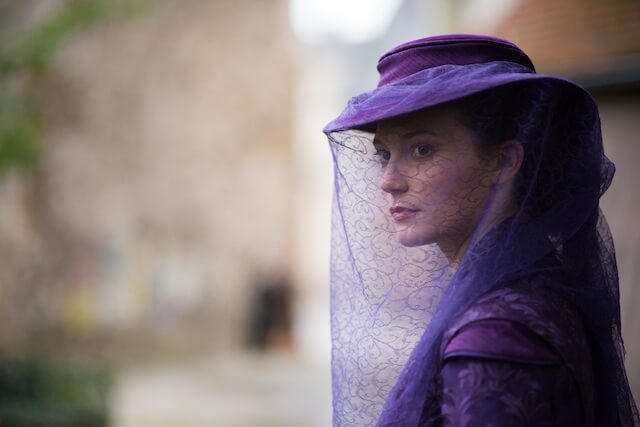‘Madame Bovary’ Legendary editor and sound designer Walter Murch once claimed the three true fathers of cinema were Thomas Edison, Ludwig Beethoven and Gustave Flaubert. Nevermind that two of them didn’t live to touch a motion picture camera; his point was that Beethoven brought a special kind of dynamism — whose rhythms, he argues, would become a key part of movies — to art, while Flaubert birthed a greater sense of realism that would inspire a medium uniquely equipped with bottling up life. It’s also worth noting that there has never been a great, or even adequate, movie of the author’s signature work, “Madame Bovary,” a tale of adultery and proto-feminism that, were it not for the prose, would likely play mere melodrama (albeit unusually tough and grim). Previous adaptations have been compromised (Vincente Minnelli’s 1949 stab, starring Jennifer Jones) or played as mere costume drama (the Isabelle Huppert version, by Claude Chabrol). The new, intermittently stirring one, directed by “Cold Souls”’ Sophie Barthes and starring Mia Wasikowska, seems to be an altogether tougher take. Barthes and her cowriter Rose Barrenche chop off the beginning and the end, so that the focus stays strictly on Emma, a random, unspectacular farmer’s daughter who weds Charles (Henry Lloyd-Hughes), a random, unspectacular doctor. Emma finds their small town life and her husband’s remoteness restricting, and thus gradually embarks on two clandestine, disastrous affairs, one with an earnest student (Ezra Miller), then with a dashing marquis (Logan Marshall-Green). Wasikowska is the big get here, and Barthes camera loves to observe her face as it cracks under the inertia of a restrictive era, or blooms into hot stuff carnality when turned on. Her Emma Bovary can be a touch too modern; at times Wasikowska acts like a woman from today who unwittingly time traveled to the 19th century. (There’s a general feeling of being unstuck in not just time and place; the accents are all over the place, including poor Olivier Gourmet, an actual French person struggling through his English-language lines.) Though sometimes angry and detached, Barthe’s film still plays like a period piece. Despite Murch’s claims about Flaubert, his prose still doesn’t offer a blue print for filmmaking — or rather, Barthes, like other “Bovary” adapters, doesn’t follow his lead. Her film is mostly plot, plowing through Emma’s affairs and subsequent tragedy. There’s a suggestion that it’s trying to subvert the period piece, but it only does it half-heartedly. It’s still a film where actors mill about pretty surroundings in pretty garbs; all Barthes does is take the camera off the tripod, as though that were grit enough. So it must be said that Wasikowska does good period, as does Rhys Ifans, as a seductive and dastardly pharmacist who lays the foundation for Emma’s fall. It’s a handsome production that wants to be more but isn’t, and all it will do is send you back to the book, wondering why no one, not even better directors than Barthes, have ever been able to get anywhere approaching the prose. Follow Matt Prigge on Twitter @mattprigge
Director: Sophie Barthes
Stars: Mia Wasikowska, Ezra Miller
Rating: R
2 (out of 5) Globes
The new ‘Madame Bovary’ also doesn’t know how to adapt Flaubert

Alchemy

















